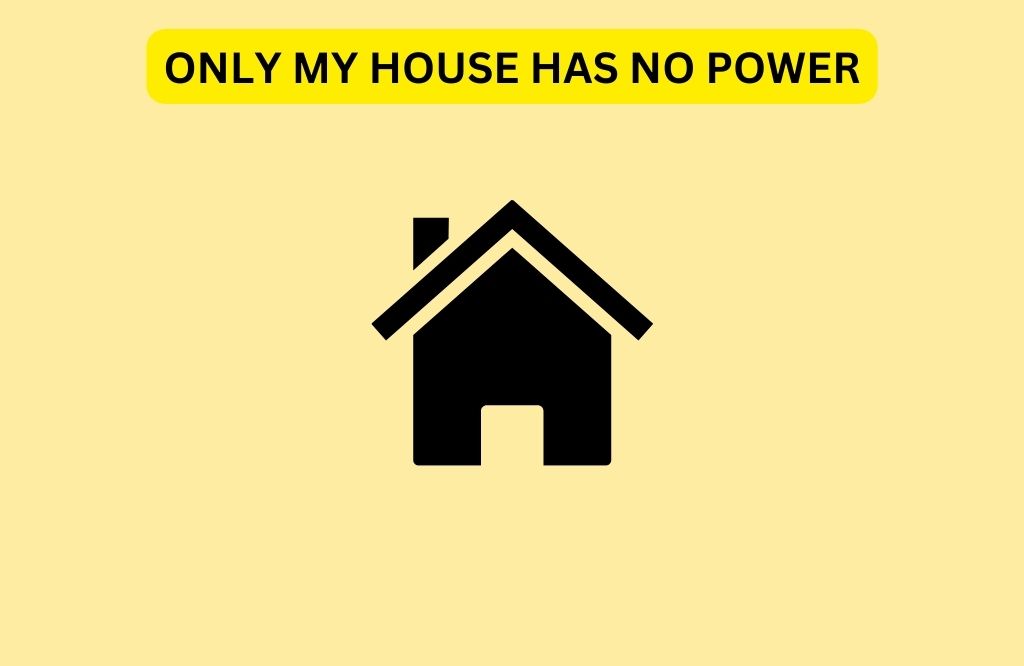Picture this: you’re relaxing at home on a tranquil evening when, out of nowhere, the lights go out. Peering out the window, you see that your neighbors’ homes remain well-lit. If this scenario sounds familiar, you’re aware of how bewildering and irritating it can be. This article is designed to offer a detailed guide to help you comprehend why this situation might occur and outline the measures you can undertake to rectify the problem.
Section 1: Initial Steps to Take
Safety First
Before diving into the technical aspects, let’s talk about safety. If your house loses power, the first thing you should do is turn off all electrical appliances. This is crucial because when the power comes back, a surge could potentially damage your devices. Instead of candles, which pose a fire risk, use flashlights or battery-operated lanterns to navigate your home.
Check the Circuit Breaker
The circuit breaker is a crucial component of your home’s electrical system. It’s designed to shut off electrical flow in the event of an overload or fault. To check it, locate your circuit breaker panel, usually found in a garage, basement, or utility room. Open the panel and look for any switches that are in the “off” position. If you find one, flip it back to the “on” position.
Why has my electricity gone off but nothing has tripped?
If you find that no switches have tripped, this could indicate a more serious issue that may require professional help.
Contact Neighbors
It’s a good idea to check with your neighbors to confirm that the issue is isolated to your house. If others are experiencing the same problem, it’s likely an issue with the local power grid, not your home.
Why there is no power in my house? Can a power cut affect one house?
If you find that only your house is affected, it’s crucial to identify the root cause. While power cuts usually affect a larger area, it’s not unheard of for a single house to lose power due to issues like faulty wiring or an overloaded circuit.
persistent electrical issues? Get A Free Quote
What Should I Do If There Is No Power?
If you’ve checked the circuit breaker and confirmed with neighbors but still have no power, the next step is to call for professional help. Keep reading to find out when and how to do this.
Section 2: Possible Causes
Electrical Overload
An electrical overload occurs when too many devices draw power from the same circuit. Signs include flickering lights and warm or discolored wall plates. To prevent this, avoid plugging too many high-wattage devices into a single outlet.
Faulty Wiring
Old or damaged wiring can be a significant risk, leading to potential fires or electrocution. If you suspect faulty wiring, it’s crucial to call a professional electrician to inspect your home.
Aged Infrastructure
Older homes may have outdated electrical systems that are not equipped to handle modern electrical loads. In such cases, you may need to upgrade your home’s electrical infrastructure.
Section 3: Professional Help
When to Call an Electrician
If you’ve ruled out simple issues like a tripped circuit breaker, it’s time to call an electrician. Signs that you need professional help include persistent electrical issues, burning smells, or visible damage to wiring.
Cost Estimates
The cost of electrical repairs can vary widely based on the issue and your location. However, it’s essential to budget for these unexpected issues. Always ask for an estimate before any work begins.
Immediate Assistance for Electrical Issues
If you’re facing persistent electrical issues and need immediate assistance, consider calling Electrical Wiring or Panel Upgrade Pros at 877-343-9331. This service is available in the U.S. and can provide quick and professional help.
Section 4: Preventative Measures
Regular Maintenance
Just like your car needs regular check-ups, so does your home’s electrical system. A typical maintenance visit from a qualified electrician can identify potential issues before they become significant problems.
Invest in Surge Protectors
Surge protectors are devices that protect your electrical appliances from voltage spikes. They are an excellent investment for safeguarding expensive electronics like computers and televisions.
Conclusion
Losing power in just your home can be a stressful experience, but understanding the possible causes and solutions can make the process less daunting. Whether it’s a simple issue like a tripped circuit breaker or something more complex requiring professional help, being educated and prepared can make all the difference.
Additional Resources
For further reading, consider looking into online guides, books, and courses that delve deeper into home electrical systems. Always keep a list of emergency contact numbers for electrical services handy, just in case.

